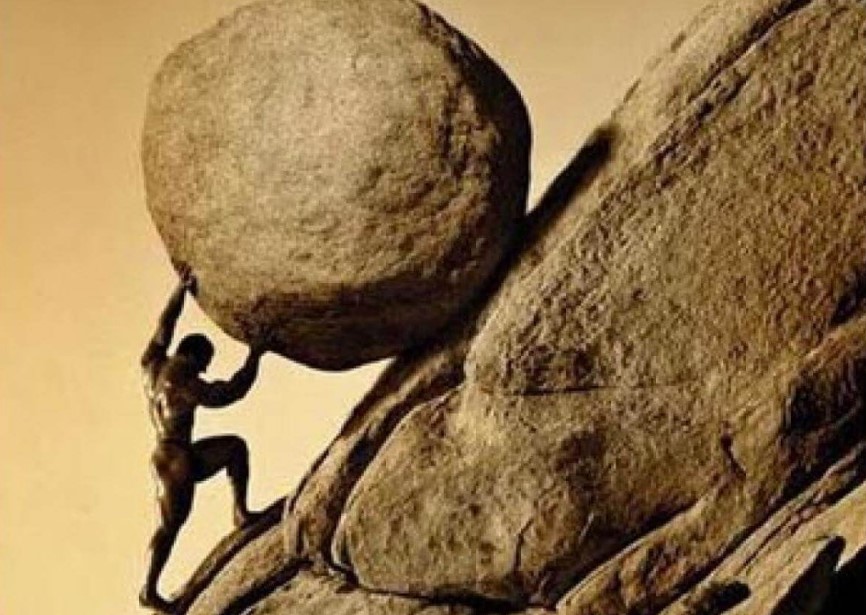 Op-Ed by Neenah Payne
Op-Ed by Neenah Payne
This article is not an endorsement of any political candidate. It is an examination of how an American legacy is shaping the bid for the presidency now. Robert Kennedy Jr. has pointed out in many of his podcast interviews that he was six years old when he attended the inauguration of his uncle John F. Kennedy in 1960. JFK was assassinated in 1963. His brother Robert Kennedy ran for the presidency and was assassinated when RFK Jr. was 14 years old. In his bid for the US presidency now, RFK Jr. is running as a “Kennedy Democrat” to promote key values he believes his uncle and father stood for and which the Democratic Party and America have lost.
This article shows that RFK Jr. has repeatedly told a story that perhaps helps us understand the reason he is running for the presidency in the face of such a dire history. Does he know his goal is impossible? Is he willing to sacrifice himself for the nation and for humanity now? If so, why?
The Plague By Albert Camus and Sisyphus The Greek Hero
Kennedy said during at least two interviews that after JFK was assassinated, his father turned to philosophers for solace and guidance. A few weeks before his father was killed, Kennedy says he gave him a copy of The Plague by Albert Camus and said emphatically, “I want you to read this!” So, after his father’s death, Kennedy read the book several times to try to figure out what his father wanted him to understand.
It is, of course, very ironic now after three years of COVID that Kennedy’s father had drawn his attention to a book about a plague! The article below is the best analysis I’ve seen of what RFK Jr. is trying to tell us now in repeatedly recounting this signature event in his life. Kennedy seems to be telling us who he is and his vision of his role now. So, understanding the meaning of this story for Kennedy is important to understanding his bid now for the US presidency and what he expects to happen.
COMMENTARY: MY INTRODUCTION OF ROBERT F. KENNEDY, JR.
By Myers Mermel
“The best introduction of Robert is the one he gives about himself. It is a story he tells frequently about his character, but no one as far as I know has yet unpacked it. He told the story recently to journalist David Samuels who briefly touched it, and he told it to Joe Rogan who only danced around it like a puppy in spring flowers and didn’t get near it.
To really understand RFK Jr., to make this introduction worthy, we should listen to him and unpack his explanation of his own character. Remember that character in our republic used to be the defining aspect of an individual. Before Washington’s Cincinnatus moment, then the apogee of good character, and the consequent rise of political parties, voters selected candidates not on the basis of issue positions they held, but on the basis of character alone. Voting on the basis of issues was vulgar because it elevated the interests of self over the interests of the community as a whole.
As Robert tells the story, his father, two weeks before his tragic death, gave him a copy of The Plague by Albert Camus. His father had read the book during a period of reflection, following President Kennedy’s assassination, in which he addressed his relationship with God, and while he continued to embrace the Catholic Church, he looked to other areas for meaning, as part of that he had found a connection with existentialism.
Camus was a post-war philosopher and existentialist, though he denied it, and The Plague was one of his three most important novels. Robert’s father with a “particular intensity” directed Robert to read the book, and Robert says he read it three times to decipher the message.
In the book, a doctor confronts the reality that his walled city has been infected by an unknown plague. He has no ability to stop the destructive effects of the plague. This initially leads him to stay inside since going out among the sick would lead to no cure, only his own destruction. Ultimately the doctor, however, does go out. His response is to comfort those who are suffering around him. Robert points out that the existentialists were legatees of the Greek school of philosophy known as Stoicism. Robert suggests that Camus’ doctor had brought order to the chaos created by the plague, by doing his own duty, and performing service at great sacrifice to himself.
Camus, an existentialist, saw in the doctor’s actions a reflection of the efforts of Sisyphus, the iconic model of Stoicism. Sisyphus was an ancient Homeric figure who performed a great service to mankind by capturing death and chaining him up. Zeus punished Sisyphus by condemning him to roll a boulder up a hill for eternity. Yet, every time Sisyphus would near the top of the hill, the boulder would roll back down.
According to Robert, through a stoic cosmology, Camus saw Sisyphus as a happy man because he put his shoulder to the stone. Sisyphus was given a duty and he did his duty. This self-sacrifice by Sisyphus brought order to a chaotic universe. Robert suggests that our universe is chaotic and that he can bring order to it by the performance of his own duty.
That’s a lot to take in. You can see why Rogan passed on it. But what does this mean? He introduces four parts. He goes from (1) existentialism with Camu– to (2) stoicism with Sisyphus– to (3) the exercise of duty– to (4) ordering of the universe. There are large steps between the parts and it’s not easy to follow. What is that Robert telling us about who he is?
For Camus, existentialism was the project through which he analyzed questions of responsibility, innocence, and guilt. Camus saw the futile actions of Sisyphus as absurd, but Camus believed Sisyphus accepted his fate and therefore was happy with it.
But let’s test this metaphor of Sisyphus a little bit further. Sisyphus was active, in motion, yes. He was a man under responsibility. But despite his duty– his actions were always futile. The endless repetition of his actions signaled no progress. But let’s consider this. Without progress there could be no Hegelian dialectic. So, Sisyphus was in essence the end of the dialectic. And the end of dialectic suggests it would have been the end of history. Haven’t we heard about the end of history recently under another public figure somewhere else before?
You know they made a movie about Sisyphus. You probably saw it. It was called Ground Hog Day with Bill Murray. In the movie, every day is a repetition of the last and no matter what happens during the day, Bill Murray’s character Phil Connors, ends up in Punxsutawney Pennsylvania getting awakened by the same clock at the same time. And, in the day that follows, Phil Connors and his metaphysical boulder roll down the hill. Phil Connors is trapped until the point when he realizes he is powerless in the face of life. When the old vagrant dies and Phil Connors cannot stop the vagrant’s death — that is moment when Phil Connors becomes a Stoic. Once he accepts things that he can’t change, he immediately breaks out of the Sisyphean cycle. He then realizes he personally has a duty to care for others.
Albert Camus and RFK Sr. probably would have loved Ground Hog Day.
But Robert’s ideas about Sisyphus are slightly different. From Robert’s description there is no breakthrough moment like the one Phil Connors enjoys. For Robert continued service is the breakthrough moment because service itself is the expression of virtue. And Stoics believe virtue is the summum bonum -the highest good—and from it derives all happiness.
Yet if all the actions of Sisyphus result in failure, why should we commend Robert’s character if he believes he can only fail—that cosmology sounds vaguely Calvinistic with double predestination – where God chooses whom to save and God chooses whom to damn. Didn’t we switch out of this line of deterministic thought with the Enlightenment? Is Robert telling us to keep trying despite the fact that we will also ultimately fail in our aims? That we should all engage in repetitive failure? No, he’s not focused on the repetitive action, the work we do, Robert explains that fulfillment of duty is the goal. He believes his duty of service is paramount to his character. It is the Rosetta Stone through which we can understand him.
In concept it is vaguely reminiscent of the “ask not what your country can do for you” type of call to duty. And most would agree that we as a society need to find our way back to communities full of people willing to serve. In his own way, Robert is offering himself as something akin to the Halfway Covenant of 1662. He is offering a way to bind the present to the very best parts of the past. In that sense Robert is telling us that he sees himself as an interlocutor of the past as it becomes our American future. Given the current state of censorship a trusted interlocutor could be a very good thing indeed. That all is worth deep consideration.
But one last thing. How does everyone doing their duty of service –actually result in “bringing order to the universe”? I mean if everyone was doing their duty of service, then everyone would be virtuous, and I thought wholly virtuous societies were composed only of angels not people born of Adam.
The “bringing order to the universe concept” is a philosophic curveball. It’s not a Stoic idea. Stoics accept the universe as it is and order their lives to it, not the reverse. They accepted the vicissitudes of life, through providence, much as eastern philosophies caution the same response. They didn’t try to subordinate the world to themselves.
Why does Robert believe order is important? Perhaps because Robert knows society seeks order in this current time of chaos. But Stoicism doesn’t bring or impose order. In the metaphysical clock of Stoicism, virtue is the counterweight to entropy which remains the heavy pendulum of our temporal existence. The desire for order ontologically arises elsewhere.
Where does the desire to bring order come from? It is a Reformation impulse. An attempt to mold the temporal world to resemble the supernatural. It is Utopianism. It is evanescent. It too is doomed to failure. However, Utopianism is one of the most significant impulses behind the idea of this Republic. While in places it can wear the cloak of exceptionalism, it is the quest to use socio-political and economic reforms to build a society where all citizens live in peace and harmony, like the image which Quaker Edward Hicks painted of his Peaceable Kingdom. While not consistent with Stoicism, this telos, this end, imbues his character with a deeply American spirit. This utopian American spirit is uniting; it binds our individual dreams and desires for a better life with his collective desire for a better society.
Our speaker tells us his character is formed out of a desire to do his duty, to be of service to others. He
asks us to follow his example. He wants us to join him in his happy work. His career history tells us that his work is not futile. For many years, his primary occupation was cleaning up the Hudson. For decades he did the work rolling the boulder up the hill on the Hudson cleanup. But he eventually got the boulder over the top. The Hudson, and many other waters, are much cleaner now than they were when he began, demonstrably cleaner. His efforts were not futile there.In summary, not many people understand what motivates them or can describe it clearly. Robert has given us insights into his character which can help us understand his worldview. He stands alone on our public stage today with his desire to explore difficult areas, to find meaning, and to perform the duty of virtuous service. I present to you Robert F Kennedy Jr.
RFK Jr. Reveals the Omens Before His Father’s and President Kennedy’s Assassinations pointed out in 2018:
By Sam Gillette
The Kennedys have experienced so much tragedy and a new book by one of their own reveals that two of the family’s most shattering tragedies were foreshadowed by omens.
In American Values: Lessons I Learned From My Family , Robert F. Kennedy Jr. details the ominous signs leading up to the assassinations of both his father, Robert F. Kennedy, and his uncle, President John F. Kennedy, as well as the intense connection between the two brothers.
“For many months after Jack’s death, my father endured in a shattered twilight state,” Kennedy writes in an exclusive email interview with PEOPLE. “My mother described him as ‘a man who had lost all his limbs.’”
Kennedy, a 64-year-old environmental attorney and activist, explains that American Values is “partly a memoir of growing up in the magical era of Camelot, and partially a history of my family’s struggles, beginning in the early 195Os, against the CIA and Washington’s military industrial apparatus.”
In the book, the author explains that his father immediately suspected that the CIA was involved in President John F. Kennedy’s assassination on Nov. 22, 1963. (This suspicion is one of many theories that exploded after the government announced that shooter Lee Harvey Oswald acted alone, according to The New York Times.)
Just as disturbing are the signs leading up to JFK’s death.
According to the book, a number of friends advised JFK not to go to Dallas. During the president’s birthday party on Nov. 20, Ethel Kennedy “found Jack distant and brooding,” and he later sang a “haunting” song to a group of friends, RFK Jr. writes. The previous weekend, “Jack had made an unusual spontaneous trip to Palm Beach to say goodbye to his father,” the author adds.
Most unsettling of all, RFK Jr. references other sources to paint an eerily prescient picture of the morning of JFK’s death. According to the book, the president eased his wife Jackie Kennedy‘s concerns about his safety that morning by telling her: “But, Jackie, if somebody wants to shoot me from a window with a rifle, nobody can stop it. So why worry about it?”
While RFK was tormented by his brother’s death (he started wearing JFK’s leather flight jacket, carried his tie clip, and kept a lock of his hair in his dressing room, according to the book), RFK eventually processed his grief and focused on his own political causes. During his time as U.S. attorney general and later as U.S. senator from New York, RFK fought against organized crime and was a champion for civil rights. Months before his death, RFK joined the race for the 1968 Democratic presidential nomination.
“Each time a man stands up for an ideal, or acts to improve the lot of others, or strikes out against injustice, he sends forth a tiny ripple of hope,” RFK said during his “Ripple of Hope” speech while in South Africa, “and crossing each other from a million different centers of energy and daring, those ripples build a current that can sweep down the mightiest walls of oppression and resistance.”
While RFK was tormented by his brother’s death (he started wearing JFK’s leather flight jacket, carried his tie clip, and kept a lock of his hair in his dressing room, according to the book), RFK eventually processed his grief and focused on his own political causes. During his time as U.S. attorney general and later as U.S. senator from New York, RFK fought against organized crime and was a champion for civil rights. Months before his death, RFK joined the race for the 1968 Democratic presidential nomination.
“Each time a man stands up for an ideal, or acts to improve the lot of others, or strikes out against injustice, he sends forth a tiny ripple of hope,” RFK said during his “Ripple of Hope” speech while in South Africa, “and crossing each other from a million different centers of energy and daring, those ripples build a current that can sweep down the mightiest walls of oppression and resistance.”
Despite his hopeful conviction, omens and danger continued to circle the Kennedy family.
“My father, as ever, was fatalistic about his own destiny,” Kennedy writes. Not only did RFK refuse to be “surrounded by security” because he was afraid of being spied on by the FBI, RFK wanted to “engage and touch the crowds.” “Often, former federal agent Billy Barry was alone with my dad in the back of a car,” Kennedy writes. “In hindsight, it was certainly reckless, given the power and determination of his many enemies. I suppose it was hubristic, too.” According to the book, death threats were so “routine that they had become banal.” While RFK remained unfazed, others were afraid for the presidential hopeful.
“Do you know what I think will happen to Bobby if he is elected president?” Jackie Kennedy told Arthur Schlesinger at a party on April 2, 1968, according to Jacqueline Bouvier Kennedy Onassis: The Untold Story by Barbara Leaming (which Kennedy also cites). “The same thing that happened to Jack. There is so much hatred in this country, and more people hate Bobby than hated Jack. That’s why I don’t want him to be president.”
The day of the California primary, RFK’s beach outing with his wife and six of his eleven children quickly turned dark when his son, David, almost drowned because of a strong undertow, according to the book. Kennedy writes that “my father pulled him out, probably saving his life.”
Shortly after, on June 5, 1968, Robert F. Kennedy was assassinated. His son, David, was left alone to watch his father’s murder replay on the TV for hours before he was discovered, according to the book. Kennedy writes that his brother “never got over that loss” and died of an overdose at the age of 28.
Looking back, RFK Jr. realizes he had his own portentous moment with his father.
“When I was 14, and [my father] was struggling with his decision to run for the presidency, he handed me a copy of Camus’s classic The Plague, and told me, with unusual urgency, to read it,” Kennedy tells PEOPLE. “It was the story of a doctor wandering home to home treating bubonic plague patients in a quarantined North African city. The doctor goes about this hopeless business quietly, without fanfare, knowing that his struggle against death is mainly fruitless and that his own demise is the likelihood.”
Kennedy adds, “Despite their apparent futility, [the doctor’s] small acts of moral courage give his life its purpose and somehow bring order to the larger universe.”
Despite the threats against RFK, or perhaps because of them, RFK Jr. explains that his father continued to believe in the lessons taught by existential writers, his Catholic faith, and Greek philosophers.
“My father’s last campaign seemed, from its outset a lost cause, but he was genuinely happy for the first time since losing his brother,” Kennedy tells PEOPLE. With a reference to Sisyphus, the king in Greek mythology who is sentenced to push a rock up a hill for all eternity, Kennedy went on: “I think my father wanted me to know that satisfaction in life comes from pushing the stone up the hill, even when all the odds and the destinies oppose you. And sometimes you might prevail. He loved Emerson’s observation that ‘If a single man plant himself upon his own ideals, and there abides, the whole wide world will come round to him.’
Kennedy’s Sense of Duty
Since Kennedy has told this story at least twice in interviews, it is clear that he understands his job in life is to serve humanity as the doctor in Camus’ story did — to go out and do his duty for the world although he might not be able to achieve his goals and his quest may even cost him his life. Yet, he sees himself as a happy man — like Sisyphus — because his job in life is to do duty, however futile.
Inevitable Suppression Awaits the RFK Jr. Movement shows many ways Kennedy’s own party is working to block any chance of his winning the nomination.
The Plague
THE PLAGUE is a novel by Albert Camus published in 1947.
Camus won the Nobel Prize for literature in 1957.
Amazon Description For Kindle Edition
A haunting tale of human resilience and hope in the face of unrelieved horror, Albert Camus’ iconic novel about an epidemic ravaging the people of a North African coastal town is a classic of twentieth-century literature. The townspeople of Oran are in the grip of a deadly plague which condemns its victims to a swift and horrifying death.
Fear, isolation, and claustrophobia follow as they are forced into quarantine. Each person responds in their own way to the lethal disease: some resign themselves to fate, some seek blame, and a few, like Dr. Rieux, resist the terror. An immediate triumph when it was published in 1947, The Plague is in part an allegory of France’s suffering under the Nazi occupation, and a timeless story of bravery and determination against the precariousness of human existence.
Neenah Payne writes for Activist Post
Become a Patron!
Or support us at SubscribeStar
Donate cryptocurrency HERE
Subscribe to Activist Post for truth, peace, and freedom news. Follow us on SoMee, Telegram, HIVE, Flote, Minds, MeWe, Twitter, Gab, What Really Happened and GETTR.
Provide, Protect and Profit from what’s coming! Get a free issue of Counter Markets today.

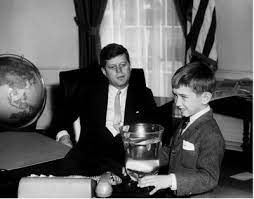
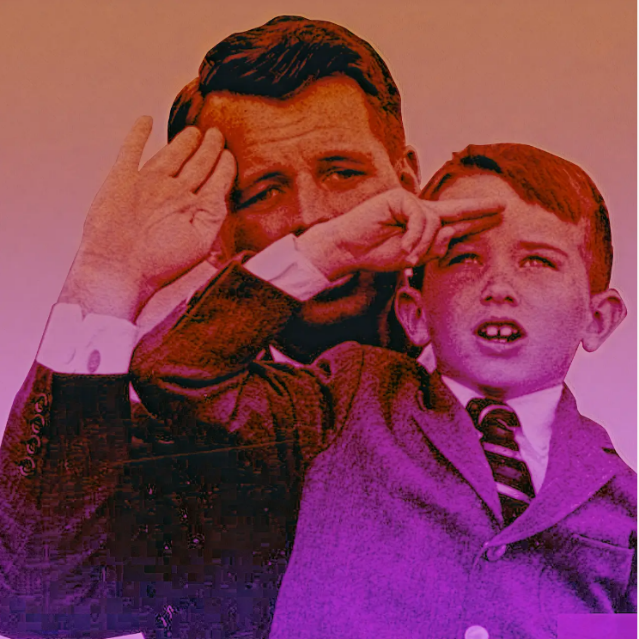
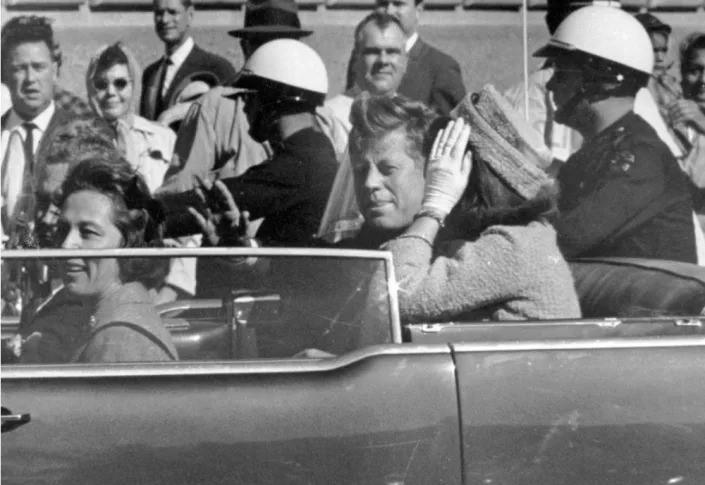
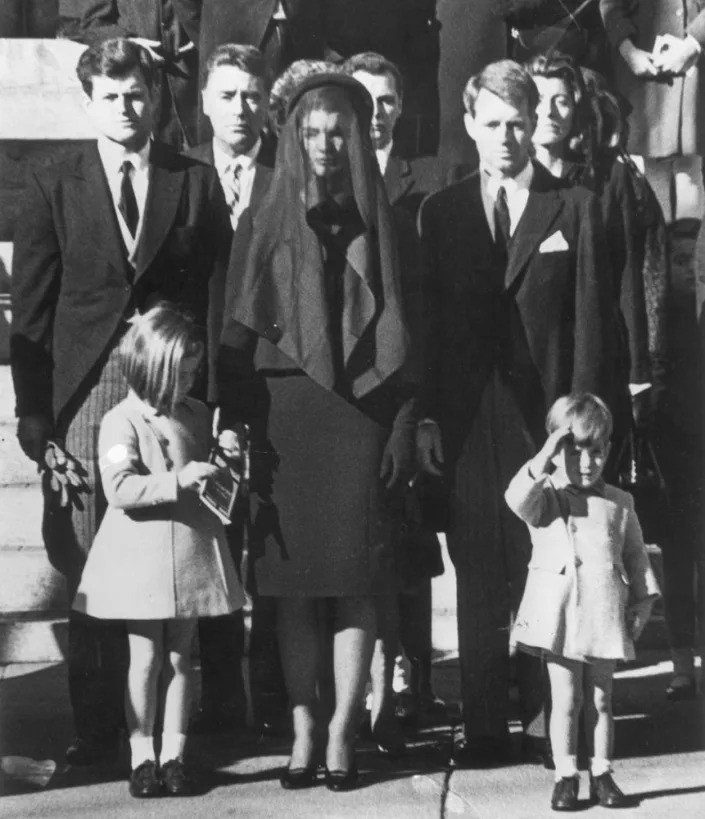
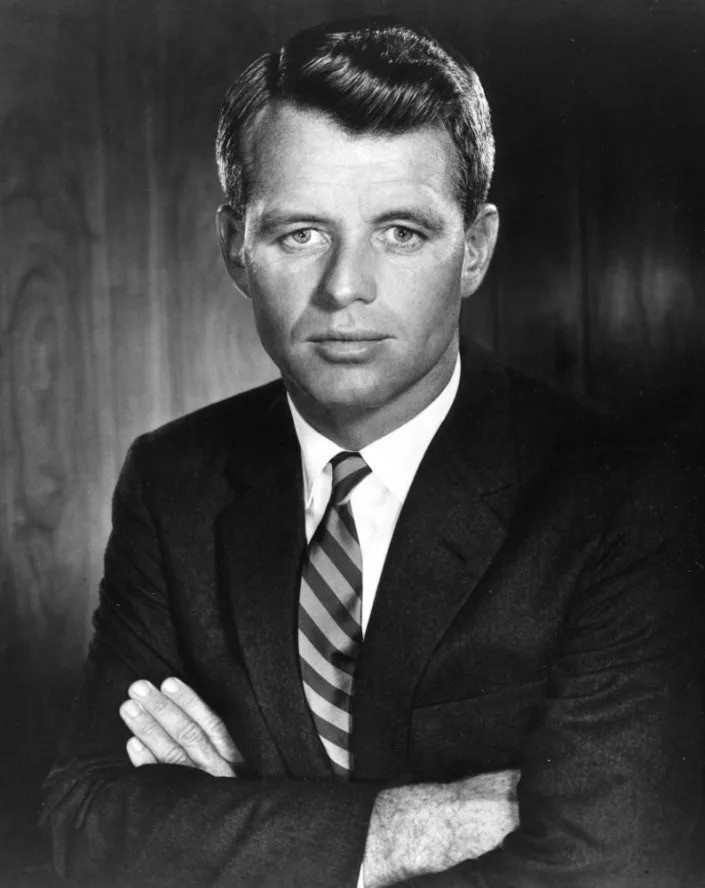
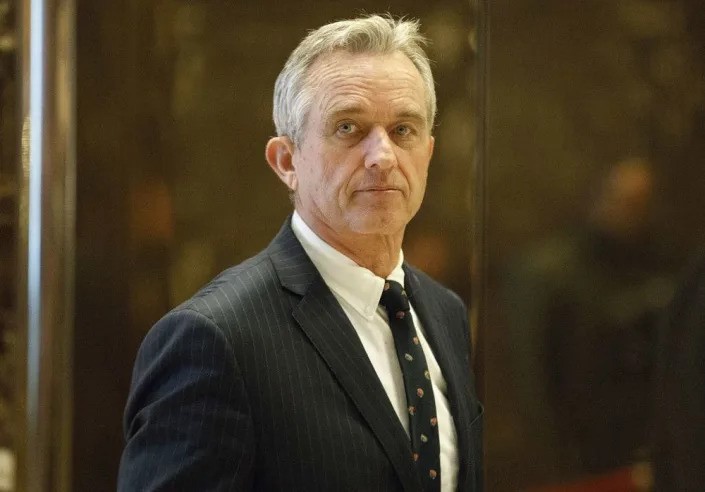
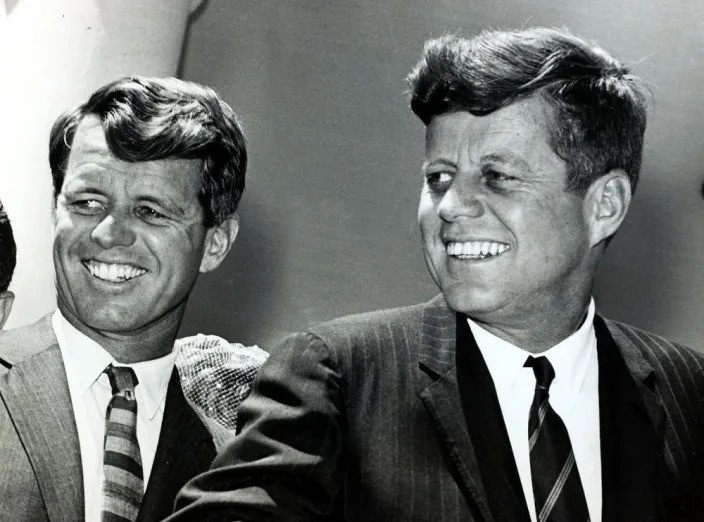

Be the first to comment on "Does RFK Jr. Know His Goal Is Impossible?"